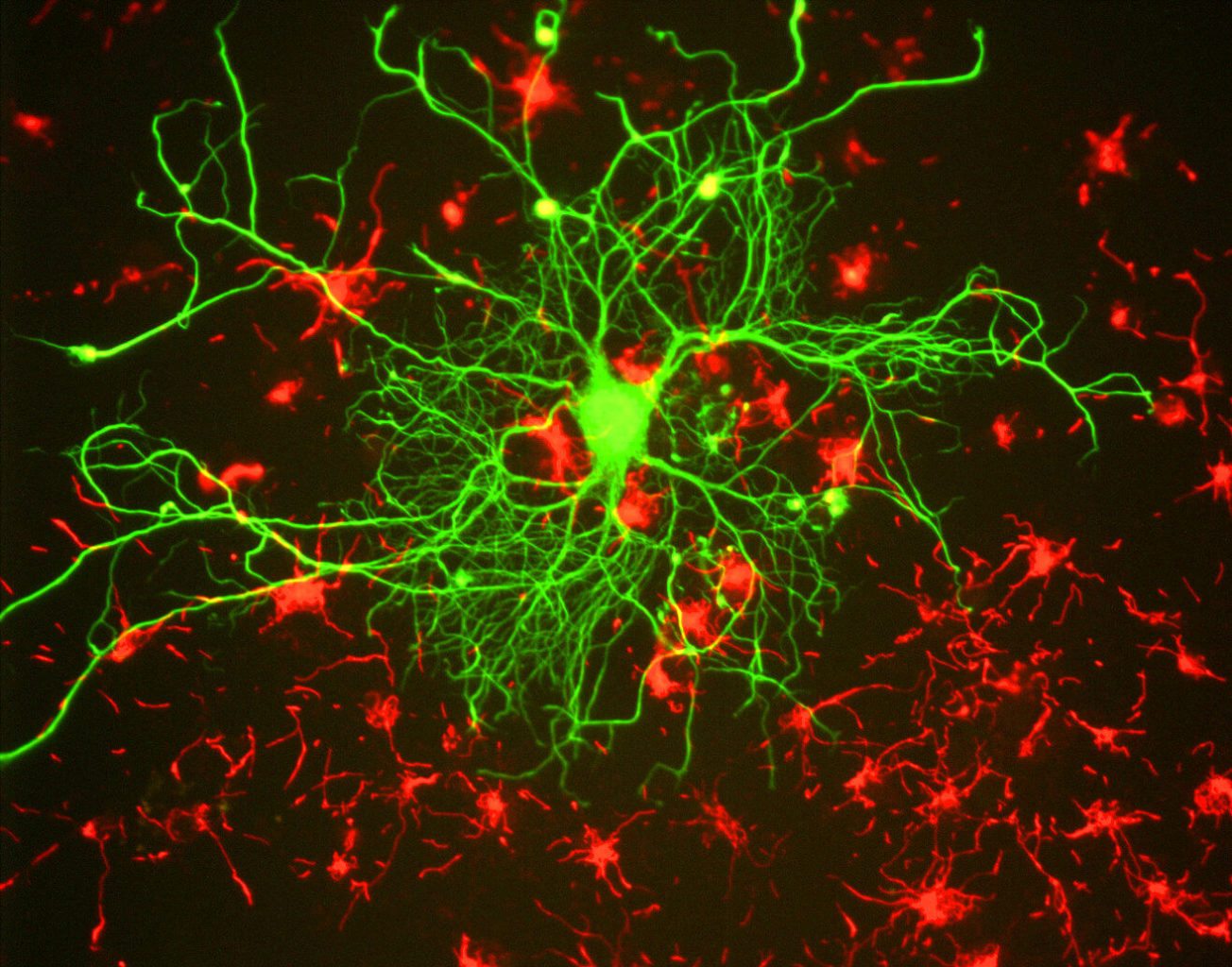Could immune responses cause Alzheimer’s?
A study conducted by researchers at the University of Southampton and Lancaster University found that there may be a greater link between the immune response to Alzheimer’s, and the memory and behavioural problems seen in sufferers, than previously thought.
A characteristic feature of Alzheimer’s disease is the gradual accumulation and aggregation of amyloid-beta plaques, which deposit themselves in gaps between neurons in the brain. These plaques are toxic to nerve cells, and have therefore been of huge interest to researchers who work on this debilitating condition.
The presence of these plaques, and other neurological effects of the disease, induces an immune response. The brain contains its own immune cells, known as microglia, which destroy any unwanted material, including plaques. It has been a source of contention as to how important this immune reaction, and its associated inflammation, is to the pathology of the disease, in particular to the loss of cognitive functions observed in patients.
The latest study, the results of which were published in the latest edition of Brain, is the most comprehensive yet on the possible link between inflammation and cognitive symptoms.
(Researchers) saw a marked decrease in the severity of memory and behavioural problems in the mice treated with the drug
Researchers used a drug that curbed the production of microglia in mice exhibiting symptoms of Alzheimer’s. They saw a marked decrease in the severity of memory and behavioural problems in the mice treated with the drug, suggesting that the immune-induced inflammation is itself a key driver of the cognitive decline associated with the disease. The researchers also noted that the particular drug used did not reduce microglia levels to below the normal level. The mechanism used (the blocking of a particular protein called CSFR1 which is heavily involved in microglia activation) only appears to remove any excess microglia, allowing the rest to continue carrying out their usual, vital immunological functions.
Professor Bruno Frenguelli of the Life Sciences department at the University of Warwick summarises the findings: “This is a very interesting and comprehensive study examining the controversial area of inflammation in Alzheimer’s disease. Using a mouse model of Alzheimer’s the authors show that reducing the inflammation caused by increase in a type of brain immune cell called microglia, they were able to prevent damage to brain nerve cells and to improve learning and memory. These data point thus to an important role for inflammation in the development and progression of Alzheimer’s disease.”
Researchers will now hope to establish that the findings also apply to human patients, the ultimate ambition being the development of a drug that could safely curb excessive numbers of microglia, thereby reducing inflammation. They have already shown, in this very same study, that the brains of post-mortem human Alzheimer’s patients contain higher levels of microglia than seen in non-Alzheimer’s patients. In addition, they were keen to stress that the drug has no effect on the amyloid plaques. This is crucial; the search for treatments for Alzheimer’s in the past has focused on these plaques. Professor Frenguelli goes on to say that, “Anti-inflammatory drugs similar to those used in the study could lead to novel targets and treatments for this debilitating condition.” This study may encourage some neuroscientists to redirect their research efforts away from amyloid plaques and towards microglia cells, or persuade them, at the very least, to take the treatment potential of the inflammatory aspect of the disease as seriously as this study suggests it deserves.

Comments